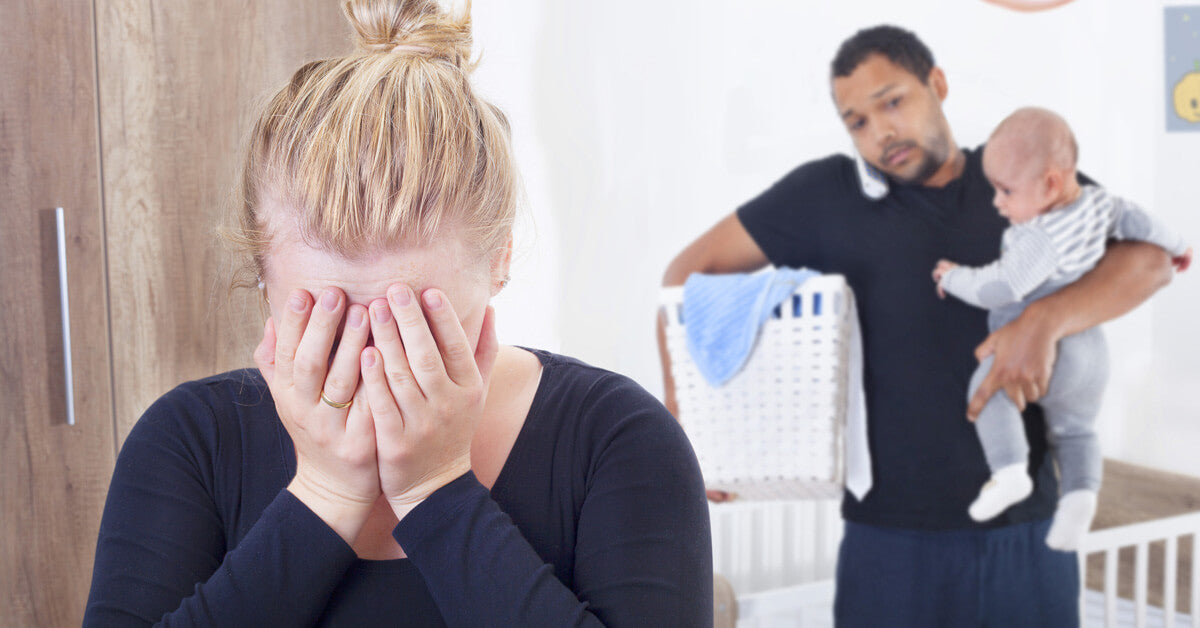
We Are The 1 In 7: Surviving Postpartum Depression
Postpartum depression is more common than most people acknowledge and can be very dangerous if left untreated.Immediately following childbirth, many women find themselves feeling weepy, exhausted, and just “down” – the typical (and non-worrisome) baby blues common among new mothers. But if these feelings don’t go away within a few weeks to a few months following delivery, it may signal something more severe: a mood disorder called Postpartum Depression that is said to affect up to one in seven new mothers. Postpartum depression is more common than most people acknowledge and can be very dangerous if left untreated. Unlike the baby blues, postpartum depression does not simply go away with time, and it can even appear months after delivery. Thankfully, postpartum depression is highly treatable if women have access to the help they need.
Symptoms of postpartum depression include changes in appetite, anxious thoughts, uncontrollable crying, changes in sleep, disinterest in normal day to day activities, difficulty getting out of bed, mood swings, difficulty concentrating and making decisions, and thoughts of self-harm. Because postpartum depression is so common, doctors are beginning to screen women much earlier so they can get adequate treatment sooner. If a woman experiences these symptoms for two weeks or longer, she should be evaluated by a medical professional to see if she may be experiencing postpartum depression.
Thankfully, there are many ways to help women with postpartum depression. Here are some of the best ways to treat mood disorders.
1. Antidepressants
Antidepressants are usually the first line of defense in battling postpartum depression. There is nothing shameful about taking medicine to treat mood disorders. Many mothers only need antidepressants temporarily, as their mood stabilizes postpartum. If you are breastfeeding, there are still antidepressants available that will not cause harm to your baby. And remember, when starting any new medication, don’t expect results overnight. Antidepressants can take up to three weeks before patients see the full benefits.
2. Psychotherapy
There are many forms of psychotherapy available to treat postpartum depression. Interpersonal therapy is thought to be the most effective form of treatment. IBT usually lasts for 3 or 4 months and teaches women how to effectively manage grief, transitioning roles, conflict, and interpersonal deficits. Cognitive-behavioral therapy is another way to treat postpartum depression. CBT therapists work with new mothers to assess their thought patterns and learn to recognize false thoughts. Cognitive-behavioral therapy can involve mindfulness, meditation, relaxation techniques, and thought to stop. Ask your doctor for a referral for a therapist if you need one!
There are many local support groups for women dealing with postpartum depression. Joining a group can help women realize they are not alone, and their feelings are valid. A depression support group can provide a safe space to openly discuss feelings and anxieties associated with postpartum depression that women may feel uncomfortable talking about with friends or family members out of fear of judgment. If you want to join a support group, your OB or your child’s pediatrician can probably connect you with resources for local groups.
4. Sleep and exercise
Getting a good night’s sleep can do wonders for a person’s mood and anxiety level. It can be hard to sleep with a newborn baby that wakes frequently throughout the night and eats frequently throughout the day. Reach out to a friend or family member to watch the baby so you can take a nap, and consider having Daddy take over a few night feedings for a while. It is ok to need breaks and rest. Exercise can also be an amazing tool for handling mood disorders. Even going on daily walks can improve your overall mood and lessen anxiety levels. Going on a quick walk while babywearing or pushing your baby in a stroller can help ease the symptoms of postpartum depression. Babywearing even helps the production of oxytocin, the hormone responsible for feelings of love, happiness, and bonding!
5. A strong support system
Friends and family can be a strong tool in combating postpartum depression. Find people you can talk openly with about your thoughts and struggles. They say “it takes a village to raise a baby,” and this couldn’t be more true! Motherhood is not meant to be faced alone. Establish your network of support early on, and lean on them during times of difficulty. It’s ok to ask for help! You don’t need to be superwoman and do it all! Cooking and cleaning can wait. If you have responsibilities you absolutely need to get done, find a friend or family member to call who can come care for your baby while you get things done!

























































